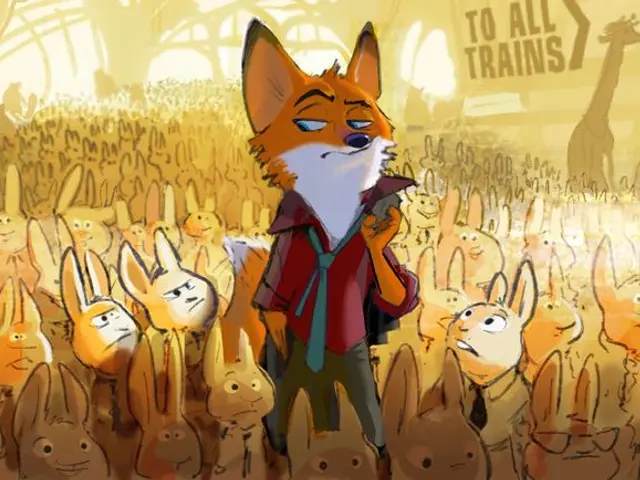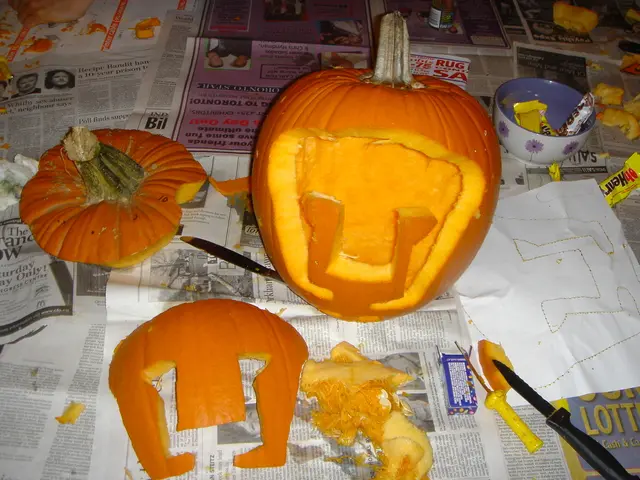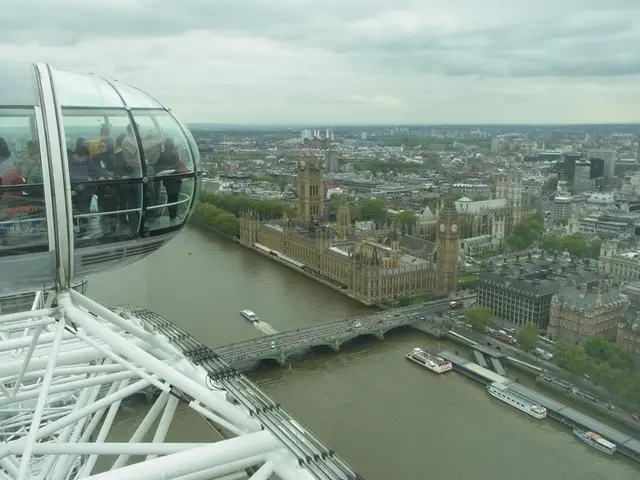Revisiting Cold War Era Cinema: Kino UNION's Showcase of East German Films
In the heart of Friedrichshagen, Berlin, lies Kino UNION - a historic cinema that has witnessed numerous transformations since its inception as a dance hall in 1870. Today, the three-screen multifunctional building retains old-school charm with plush decor and a bar. It offers a regular slate of new films and restorations, earning a reputation as a hub for East German cinematic history.
Carlo Carluccio, the program director for DEFA Classics at Kino UNION, has been instrumental in curating the venue's East German film offerings. He shared his insights on the DEFA program, the history and significance of DEFA films, and the importance of archiving cinema for future generations.
Carluccio's journey with DEFA began with a long-held desire to showcase the classic East German films at Kino UNION. The DEFA program launched in November 20XX with the screening of Solo Sunny, with a new DEFA classic screened every month since.
DEFA (Deutsche Film-Aktiengesellschaft) was the state-owned film studio in East Berlin, operative from 1946 to 1992. Its repertoire ranged from political dramas and children's films to experimental works, many of which showcased the unique social and political climate of East Germany. The DEFA program at Kino UNION serves as a retrospective, providing an introduction to historically significant films, creating cultural context, and fostering discussions on themes such as propaganda, censorship, and artistic resistance.
The inception of DEFA was driven by various political and cultural factors, including rebuilding German culture, controlling ideological cinema direction, and shaping East German identity. Stiftung Deutsche Kinemathek, the German cinematheque foundation in Berlin, awards the broadcasting rights for DEFA films, collaborating with Kino UNION for the rights to German classics.
In addition to screenings at Kino UNION, Deutsche Kinemathek is dedicated to documenting, researching, and promoting the history of film and television. It collects, preserves, and disseminates valuable film materials and receives institutional funding from the Minister of State for Culture and the Media. In January 2025, the Kinemathek moved into E-Werk, a temporary location in Berlin-Mitte.
DEFA films can be defined by their ideological, artistic, and political influences unique to the socialist state. The diverse collection has gained a global audience, transcending Berlin and German boundaries through ongoing restoration efforts, academic interest, and international screenings. These screenings at Kino UNION offer a unique opportunity to experience restored classics from East Germany, with short introductions, creator insights, and rich cinematic history presented on the big screen.
Some classic DEFA films that showcase the breadth and historical significance of East German cinema include The Legend of Paul and Paula, Jakob the Liar, Solo Sunny, Trace of Stones, Three Hazelnuts for Cinderella, and Coming Out. Kino UNION continues to exhibit a DEFA classic every month, with plans to expand the series and preserve the valuable cinematic heritage.
The Legend of Paul and Paula will be screened at Kino UNION on May 18. For more information, visit details.
- Kino UNION, with its plush decor and bar, is a three-screen multifunctional building that offers a regular slate of new films and restorations.
- Carlo Carluccio, the program director for DEFA Classics at Kino UNION, has been instrumental in curating the venue's East German film offerings.
- The DEFA program at Kino UNION serves as a retrospective, providing an introduction to historically significant films.
- DEFA films offer cultural context and foster discussions on themes such as propaganda, censorship, and artistic resistance.
- DEFA, operative from 1946 to 1992, was the state-owned film studio in East Berlin.
- DEFA's repertoire ranged from political dramas and children's films to experimental works.
- The inception of DEFA was driven by various political and cultural factors.
- Stiftung Deutsche Kinemathek, the German cinemathek foundation in Berlin, awards the broadcasting rights for DEFA films.
- Deutsche Kinemathek is dedicated to documenting, researching, and promoting the history of film and television.
- DEFA films gained a global audience due to ongoing restoration efforts, academic interest, and international screenings.
- These screenings at Kino UNION offer a unique opportunity to experience restored classics from East Germany.
- Short introductions, creator insights, and rich cinematic history are presented on the big screen at Kino UNION.
- The Legend of Paul and Paula, a classic DEFA film, will be screened at Kino UNION on May 18.
- For more information, visit details.
- The DEFA program launched in November 20XX with the screening of Solo Sunny.
- A new DEFA classic is screened every month at Kino UNION since the program's launch.
- Stiftung Deutsche Kinemathek collaborates with Kino UNION for the rights to German classics.
- In addition to screenings, Deutsche Kinemathek is dedicated to conserving and disseminating valuable film materials.
- The Kinemathek receives institutional funding from the Minister of State for Culture and the Media.
- In January 2025, the Kinemathek moved into E-Werk, a temporary location in Berlin-Mitte.
- The breadth and historical significance of East German cinema are showcased by classic DEFA films such as Jakob the Liar.
- Trace of Stones, Three Hazelnuts for Cinderella, and Coming Out are also among the classic DEFA films.
- Kino UNION plans to expand the DEFA series and preserve the valuable cinematic heritage.
- Sports-related films and documentaries can be found in DEFA's diverse collection.
- Soccer, baseball, hockey, golf, and racing are among the sports reflected in DEFA films.
- Sports-betting, European leagues, and mixed-martial-arts are also subjects addressed in DEFA's extensive library.








